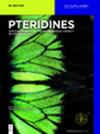结直肠癌患者亚甲基四氢叶酸还原酶(MTHFR)基因rs1801133 C >t多态性和对5-FU化疗的反应:一项荟萃分析
IF 0.9
4区 医学
Q4 BIOCHEMISTRY & MOLECULAR BIOLOGY
引用次数: 2
摘要
摘要背景:亚甲基四氢叶酸还原酶(MTHFR)催化5,10-亚甲基四氢叶酸转化为5-甲基四氢叶酸,而5-甲基四氢叶酸是同型半胱氨酸再甲基化为蛋氨酸的共底物。MTHF rs1801133 C>T的单核苷酸多态性(SNP)影响结直肠癌的易感性。然而,MTHFR rs1801133 C >t多态性与结直肠癌患者对5-氟尿嘧啶(5-FU)化疗的反应之间的关系尚不清楚。方法:系统检索PubMed、Web of Science、Embase和中国知网(CNKI)电子数据库中与结直肠癌患者MTHFR rs1801133 C b> T多态性及5-FU化疗应答相关的研究。从每篇纳入的出版物中提取CC、CT和TT的基因型。计算5-FU化疗反应组和耐药组基因型CC、CT和TT分布,采用随机或固定效应模型,采用优势比(or)效应大小和95%置信区间(95% CI)进行汇总。通过Begg’s漏斗图和Egger’s直线回归检验评价发表偏倚。结果:通过检索电子数据库,本meta分析纳入了16项与MTHFR基因rs1801133 C>T多态性和结直肠癌患者对5-FU化疗反应相关的研究。合并数据显示,CT+TT组与CC组在显性遗传模型CT+CC vs CC (OR=1.21, 95% CI: 0.93~1.59, p>0.05)和隐性遗传模型TT vs CT+CC (OR=1.37, 95% CI: 0.91~2.06, p>0.05)的肿瘤有效率无统计学差异。CT+TT组与CC组3-4级不良反应发生率在显性遗传模型CT+CC与CC组(OR=0.90, 95% CI: 0.76~1.07, p>0.05)、隐性遗传模型TT与CT+CC组(OR=1.12, 95% CI: 0.84~1.50, p>0.05)之间也无统计学差异。Begg 's漏斗图和Egger 's直线回归检验显示无发表偏倚。结论:结直肠癌患者5-FU化疗的疗效和不良反应在MTHFR rs1801133 C>T多态性方面无显著差异。本文章由计算机程序翻译,如有差异,请以英文原文为准。
Methylene tetrahydrofolate reductase (MTHFR) gene rs1801133 C>T polymorphisms and response to 5-FU based chemotherapy in patients with colorectal cancer: a meta-analysis
Abstract Background: Methylene tetrahydrofolate reductase (MTHFR) catalyzes the conversion of 5,10-methylenetetrahydrofolate to 5-methyltetrahydrofolate, a cosubstrate for homocysteine remethylation to methionine. Single nucleotide polymorphisms (SNP) of MTHF rs1801133 C>T can influence susceptibility to colorectal cancer. However, an association between MTHFR rs1801133 C>T polymorphisms and response to 5-Fluorouracil (5-FU) based chemotherapy in patients with colorectal cancer was not clear. Methods: Studies relevant to MTHFR rs1801133 C>T polymorphisms and response to 5-FU based chemotherapy in patients with colorectal cancer were systematic searched in the electronic databases of PubMed, Web of Science, Embase, and China National Knowledge Infrastructure (CNKI). The genotypes of CC, CT, and TT were extracted from each included publication. The genotypes CC, CT, and TT distribution in 5-FU based chemotherapy response and resistance groups were calculated and pooled through random or fixed effect model by the effect size of odds ratio (OR) and 95% confidence interval (95% CI). The publication bias was evaluated through Begg’s funnel plot and Egger’s line regression test. Results: After searching the electronic databases, 16 studies related to MTHFR gene rs1801133 C>T polymorphisms and a response to 5-FU based chemotherapy in patients with colorectal cancer were included in the present meta-analysis. The pooled data showed no statistical difference in tumor response rate between CT+TT and CC groups in the dominant genetic model CT+CC vs CC (OR=1.21, 95% CI: 0.93~1.59, p>0.05) and recessive model TT vs CT+CC (OR=1.37, 95% CI: 0.91~2.06, p>0.05). The grade 3-4 adverse reaction rate between CT+TT and CC groups also had no statistical difference in the dominant genetic model CT+CC vs CC (OR=0.90, 95% CI: 0.76~1.07, p>0.05) and recessive model TT vs CT+CC (OR=1.12, 95% CI: 0.84~1.50, p>0.05). The Begg’s funnel plot and Egger’s line regression test demonstrated no publication bias. Conclusion: The response and adverse reaction of 5-FU based chemotherapy in colorectal patients were not different in terms of MTHFR rs1801133 C>T polymorphisms.
求助全文
通过发布文献求助,成功后即可免费获取论文全文。
去求助
来源期刊

Pteridines
生物-生化与分子生物学
CiteScore
1.20
自引率
25.00%
发文量
6
审稿时长
>12 weeks
期刊介绍:
Pteridines is an open acess international quarterly journal dealing with all aspects of pteridine research. Pteridines are heterocyclic fused ring compounds involved in a wide range of biological functions from the color on butterfly wings to cofactors in enzyme catalysis to essential vitamins. Of the pteridines, 5,6,7,8-tetrahydrobiopterin is the necessary cofactor of several aromatic amino acid monoxygenases, the nitric oxide synthases and glyceryl ether monoxygenase (GEMO). Neopterin plays an essential role in the immune system and is an important biomarker in laboratory medicine for diseases such as HIV, cardiovascular disease, malignant tumors, among others.
Topics:
-Neopterin, dihydroneopterin, monapterin-
Biopterin, tetrahydrobiopterin-
Folates, antifolates, riboflavin-
Phenylalanine, tyrosine, phenylketonuria, serotonin, adrenalin, noradrenalin, L-DOPA, dopamine, related biogenic amines-
Phenylalanine hydroxylase, tyrosine hydroxylase, tryptophan hydroxylase, nitric oxide synthases (iNOS), alkylglycerol monooxygenase (AGMO), dihydropterin reductase, sepiapterin reductase-
Homocysteine, mediators of inflammation, redox systems, iron.
 求助内容:
求助内容: 应助结果提醒方式:
应助结果提醒方式:


